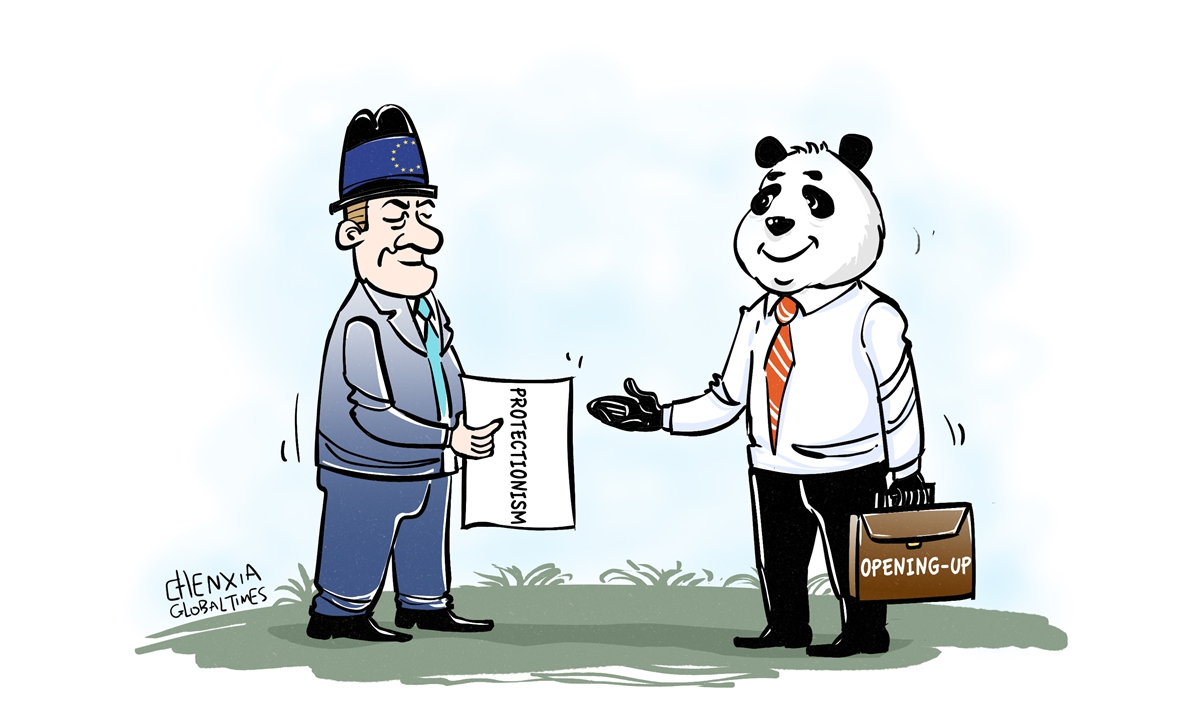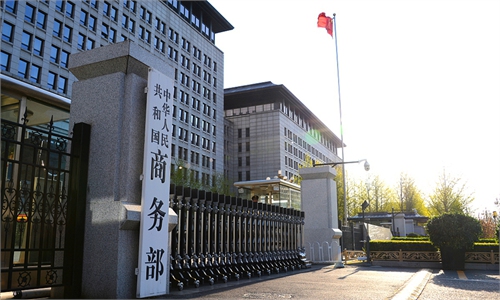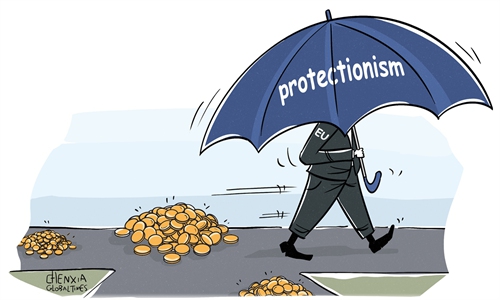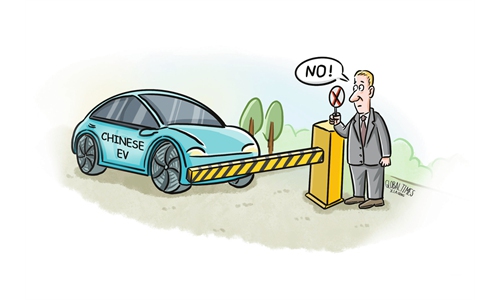
Illustration: Chen Xia/GT
The EU does not want a trade war with China, the bloc's ambassador to China, Jorge Toledo, said at an event in Shanghai on Saturday. He added that concern is growing over Chinese market access for European medical devices, Reuters reported.The remarks made by the EU ambassador to China regarding trade dispute and market access issues reflect certain complexities and challenges in the China-EU economic and trade relationship. However, it is important to note that China's pace of opening-up will not be halted by external pressure or doubts.
China has been committed to opening up its market, which are important measures to promote high-quality development. In this process, China not only focuses on its own legitimate rights and interests but also emphasizes mutually beneficial cooperation with other countries. It is hoped that the EU can adopt a more rational and constructive attitude toward China's development and the process of market opening.
In the context of trade tensions between China and Europe caused by the EU's protectionist tariffs on Chinese electric vehicles (EVs), which have attracted widespread attention, there are broad concerns about the escalation of the trade disputes. While the EU ambassador to China has stated that there is no intention to initiate a trade war, the pressure on China regarding market access issues does little to alleviate these worries.
Regarding the market access issue, the EU in late April announced that it was starting an investigation into Chinese market access regarding government procurement of medical devices. In response, Chinese Foreign Ministry spokesperson Wang Wenbin noted that the EU has been frequently using its economic and trade "toolkit" and trade remedies. The moves send a signal of protectionism, aim at Chinese companies and hurt the EU's own image.
In response to the European side's recent unilateral decision to impose protectionist tariffs on Chinese EVs, a spokesperson for the Chinese Ministry of Commerce stated that the EU's anti-subsidy investigation contains many unreasonable and non-compliant aspects, and is a protectionist practice that, under the guise of "fair competition," actually constitutes "unfair competition."
Even in the face of frequent protectionist measures from the EU, China is actively pursuing consultations aimed at maintaining mutual trust, accelerating consensus and resolving differences through dialogue. This proactive stance reflects China's sincerity and commitment to preventing further escalation of trade disputes. The EU needs to respond with a rational and positive approach.
China has consistently underscored the importance of opening its market to foreign investment, particularly by European businesses. In recent years, China has steadily expanded its institutional openness, broadened market access in manufacturing, services and other sectors, continuously reduced the negative list for foreign investment access, and optimized the business environment, creating extensive market opportunities for enterprises from various countries, including those in Europe.
This year, in addition to various measures aimed at fostering greater openness, the country has fully opened its manufacturing sector and partially opened its medical sector in select regions. These strategic moves are designed to provide abundant opportunities for foreign enterprises.
There is still great potential to be tapped by economic and trade cooperation between China and the EU across various sectors, including technology, the green economy and sustainable development. While tensions and challenges have arisen in certain areas, China remains committed to promoting and deepening cooperation through promoting high-standard opening-up.
China's steadfast commitment to maintaining an open market is unwavering. If the EU chooses to respond rationally and refrains from further pursuing protectionist measures that could escalate trade tensions, both sides can work together to effectively tackle the challenges that arise in the realm of economic and trade cooperation. By fostering a collaborative environment, China and the EU can enhance mutual benefits for both economies to navigate the complexities of the global market.
China's economic growth is expected to remain steady while the nation increasingly prioritizes high-quality development. This shift will open up significant market opportunities for enterprises from Europe. Hopefully, European trade policy makers can return to the right track of promoting mutually beneficial outcomes.
The author is a reporter with the Global Times. bizopinion@globaltimes.com.cn



